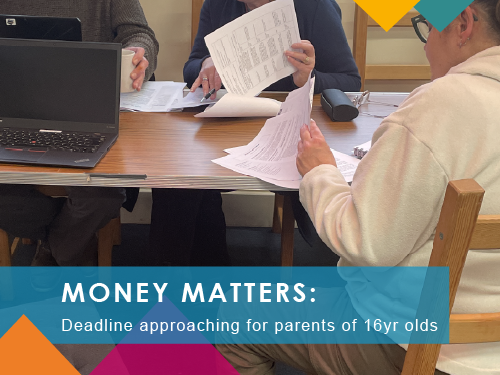Money Matters: Deadline approaching for parents of 16 year olds

In this week’s Money Matters column, Wrekin’s debt and energy manager Dan Bebbington explains how your household finances change once a child leaves full-time education.
As the school year comes to an end, many families are preparing for a big change – children finishing full-time education.
With this milestone comes inevitable changes in your household finances, and there are several aspects of this to consider.
Firstly, child benefit usually stops in the August after a child turns 16, unless they continue in approved education or training. This includes A-levels, most vocational qualifications up to level 3 and pre-apprenticeships.
You’ll need to inform HMRC if your child is staying in education, otherwise your last payment will be in August.
If you’re claiming Universal Credit, the child element of your claim will also end in the August after the child turns 16, but can be extended by up to three more years if you inform the DWP they are still in education or training.
You will stop getting Child Benefit and the child element of UC if your child starts an apprenticeship.
If your child moves into employment, the DWP will not take a ‘non-dependant’ deduction (a non-dependant is somebody who normally lives with you, but isn't legally dependent on you for financial support) from Universal Credit until they reach the age of 21. However, if you still receive Housing Benefit to help with your rent, the amount you receive may be affected once your child reaches 18. Ensure you report any changes to your Local Authority.
It's crucial to report any change in circumstances to Universal Credit, either through your online account or by calling them, to avoid overpayments and potential debt.
Remember, once a grown-up child is removed from your UC claim, they may be able to make their own claim, depending on their circumstances.
For single-adult households, there can be other considerations once your child leaves school.
If you receive child maintenance payments from an ex-partner, these could also end in the August after the child turns 16, but can continue up to the age of 20 for young adults still in full-time education or training.
Of course the other parent may wish to continue supporting the child longer than they legally have to, for example if they start an apprenticeship or go to university, but this would be down to individual private arrangements.
It’s also worth remembering that single parents will lose their 25% council tax discount once a child turns 18, unless they’re still a student (this one does include university students). There may be other exemptions you can apply for, check with your local authority for details.
I’d encourage all parents to start planning for these changes as your child nears the end of their time at school or college.
If you need help with benefits, budgeting or other financial concerns, you can contact charities like Citizens Advice. Wrekin Housing Group customers can also contact our Money Matters team.
15th July 2025